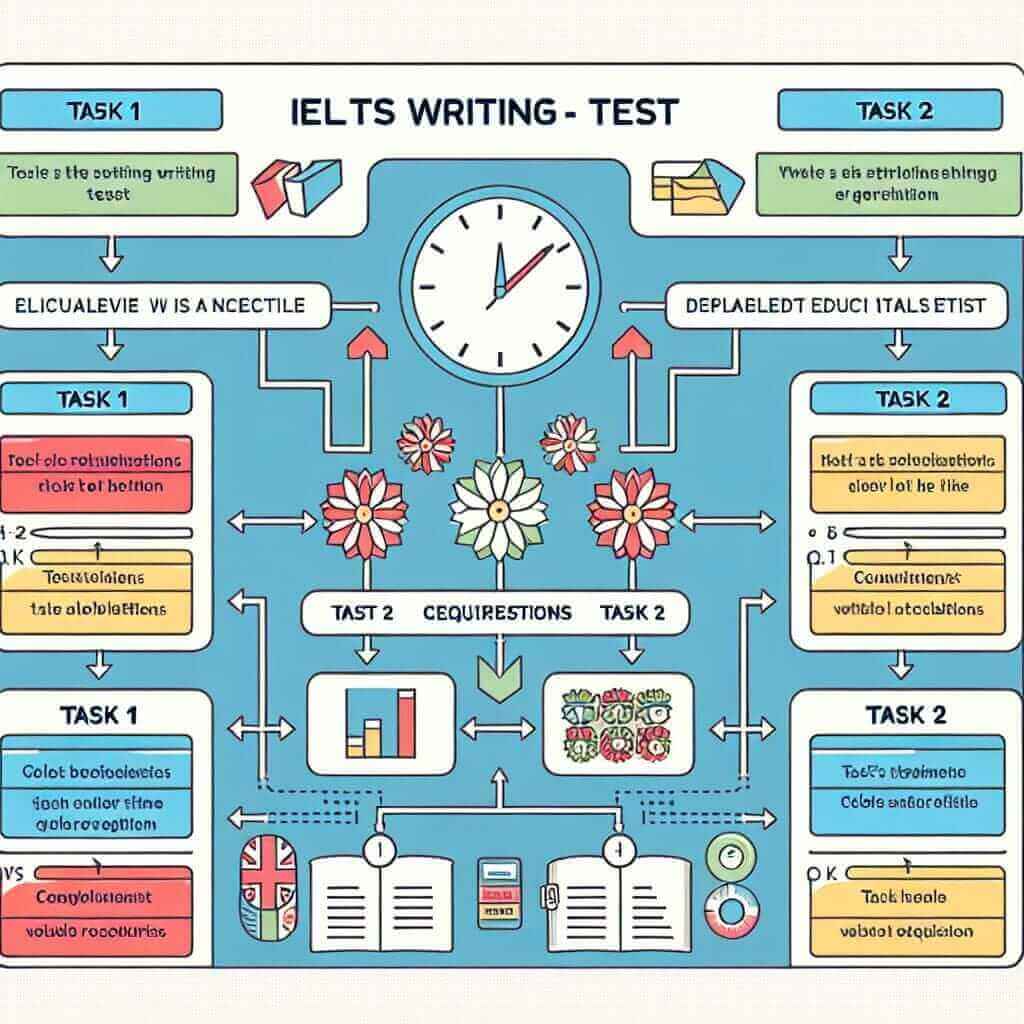Preparing for the IELTS exam requires a comprehensive understanding of each test component, especially the writing section, which many candidates find challenging. This article will delve into the duration of the IELTS writing test, a critical aspect for effective preparation. Understanding this duration can significantly enhance your time management skills during the exam.
What is the IELTS Writing Test Duration?
The IELTS writing test, a crucial segment of the exam, has a fixed duration of 60 minutes. During these 60 minutes, candidates are required to complete two separate tasks:
-
Task 1: This task differs based on the type of IELTS test you are taking—Academic or General Training.
- Academic IELTS: You must describe, summarize, or explain information presented in a graph, table, chart, or diagram.
- General Training IELTS: You are usually required to write a letter requesting information or explaining a situation.
-
Task 2: In both versions, this task involves writing an essay responding to a point of view, argument, or problem.
Breakdown of Time Management
Effective time management is critical for the writing test. Here is a suggested breakdown of how to allocate your 60 minutes:
- Task 1: Approximately 20 minutes
- Task 2: Approximately 40 minutes
Since Task 2 is worth twice as many points as Task 1, it is essential to allocate more time accordingly.
Examples from Actual IELTS Exams
Understanding how to manage your time with examples from real IELTS tests can be incredibly helpful:
-
Academic Task 1 Example:
- Prompt: “The graph below shows the number of university graduates in a particular country from 1992 to 2002. Summarize the information by selecting and reporting the main features, and make comparisons where relevant.”
- Time Allocation: 20 minutes
-
General Training Task 1 Example:
- Prompt: “You have recently moved into a new house. Write a letter to a friend about your new house and tell him/her about your favorite room.”
- Time Allocation: 20 minutes
-
Task 2 Example:
- Prompt: “Some people believe that all students should be required to study a foreign language. To what extent do you agree or disagree with this statement?”
- Time Allocation: 40 minutes
Practicing these tasks within the specified time limits is crucial for success.

Common Mistakes and How to Avoid Them
1. Mismanaging Time
Failing to adhere to the time allocations can lead to incomplete tasks or rushed answers. Use a timer during practice sessions to ensure that you can complete each task in the allocated time.
2. Not Planning
Jumping into writing without a plan can result in disorganized and unclear essays. Spend a few minutes outlining your response before you start writing.
3. Ignoring Task Requirements
Forgetting to address all parts of the prompt or deviating from the topic can penalize heavily. Always ensure you fully understand the task requirements before starting.
Effective Practice Strategies
1. Practice Under Exam Conditions
Simulate exam conditions by practicing with a timer set for 60 minutes. Complete both Task 1 and Task 2 within this timeframe.
2. Review and Understand Criteria
Familiarize yourself with the scoring criteria for writing tasks. Understanding what examiners look for can guide your practice and help you focus on improving the right areas.
3. Seek Feedback
After writing practice essays, seek feedback from teachers or peers. Constructive criticism can help identify areas for improvement and enhance your writing skills.
4. Use Authentic Materials
Practice with real IELTS test materials. This helps you become familiar with the format and types of questions you will encounter.
Conclusion
In conclusion, understanding the IELTS writing test duration and effectively managing your time during the exam are crucial for achieving a high score. By adhering to the suggested time allocations, avoiding common mistakes, and practicing regularly under exam conditions, you can enhance your writing skills and confidence. Remember to seek feedback and continuously strive for improvement. If you have any questions or need further assistance, feel free to leave a comment or explore more articles on our website. Good luck with your IELTS preparation!